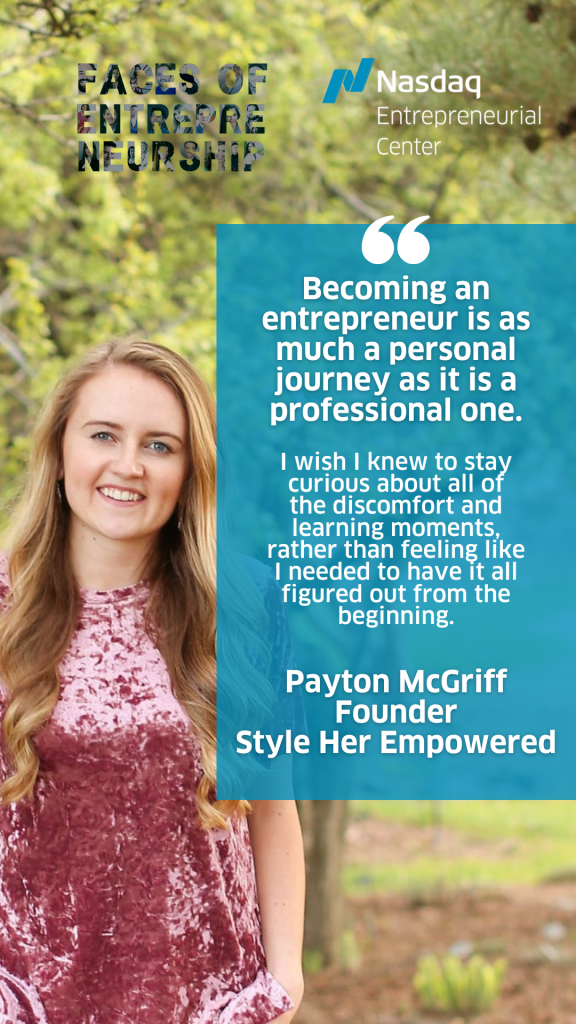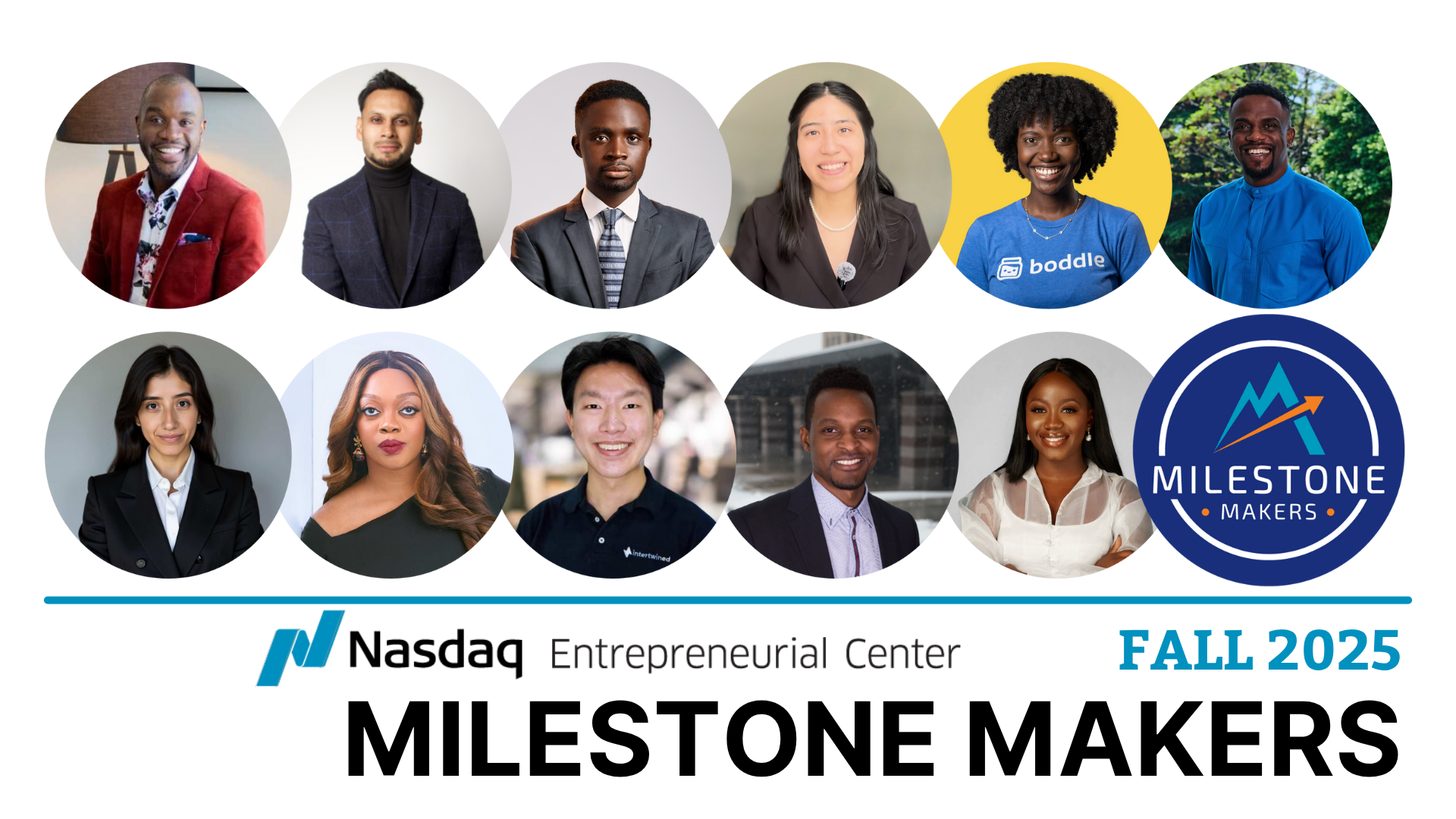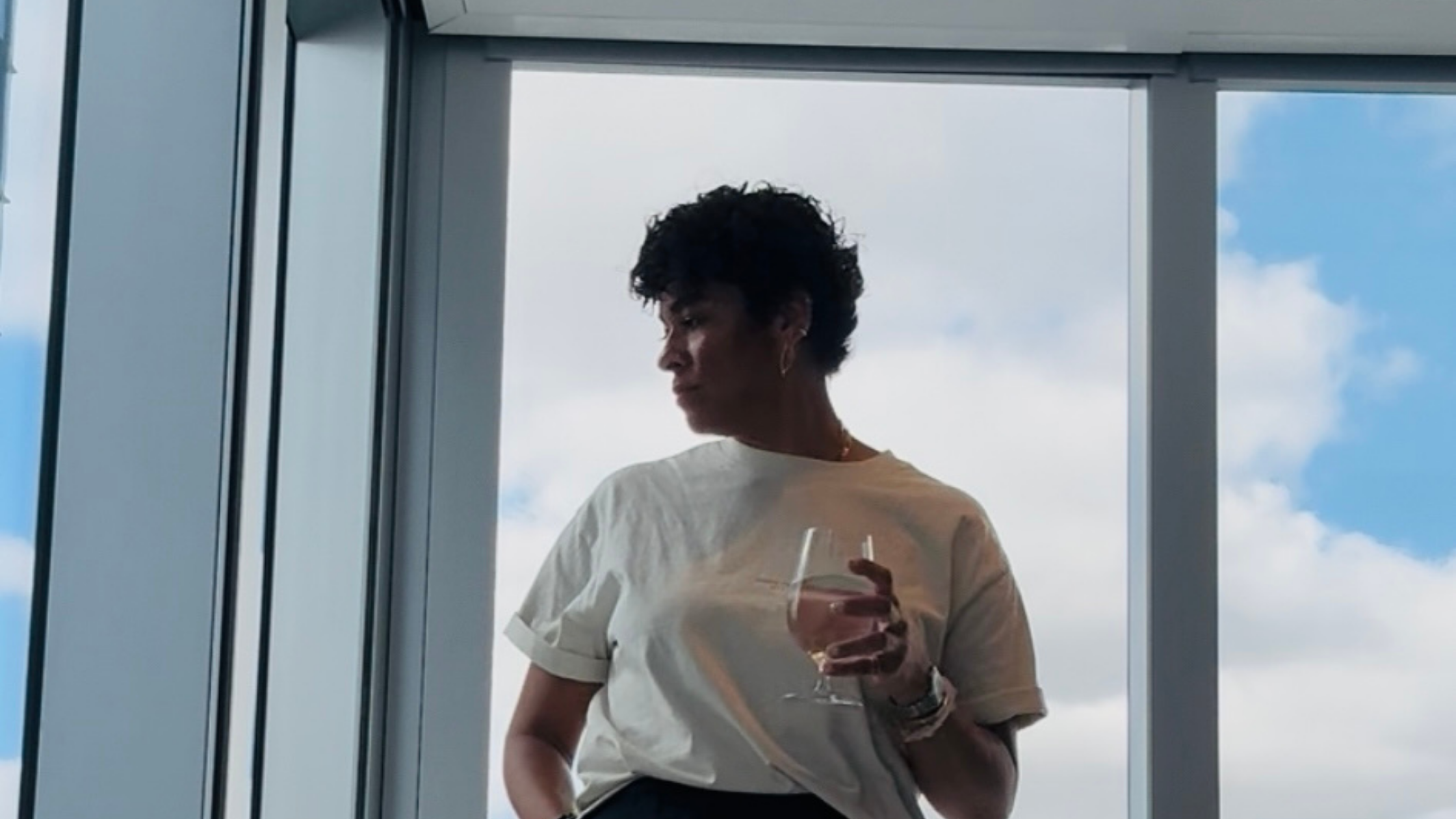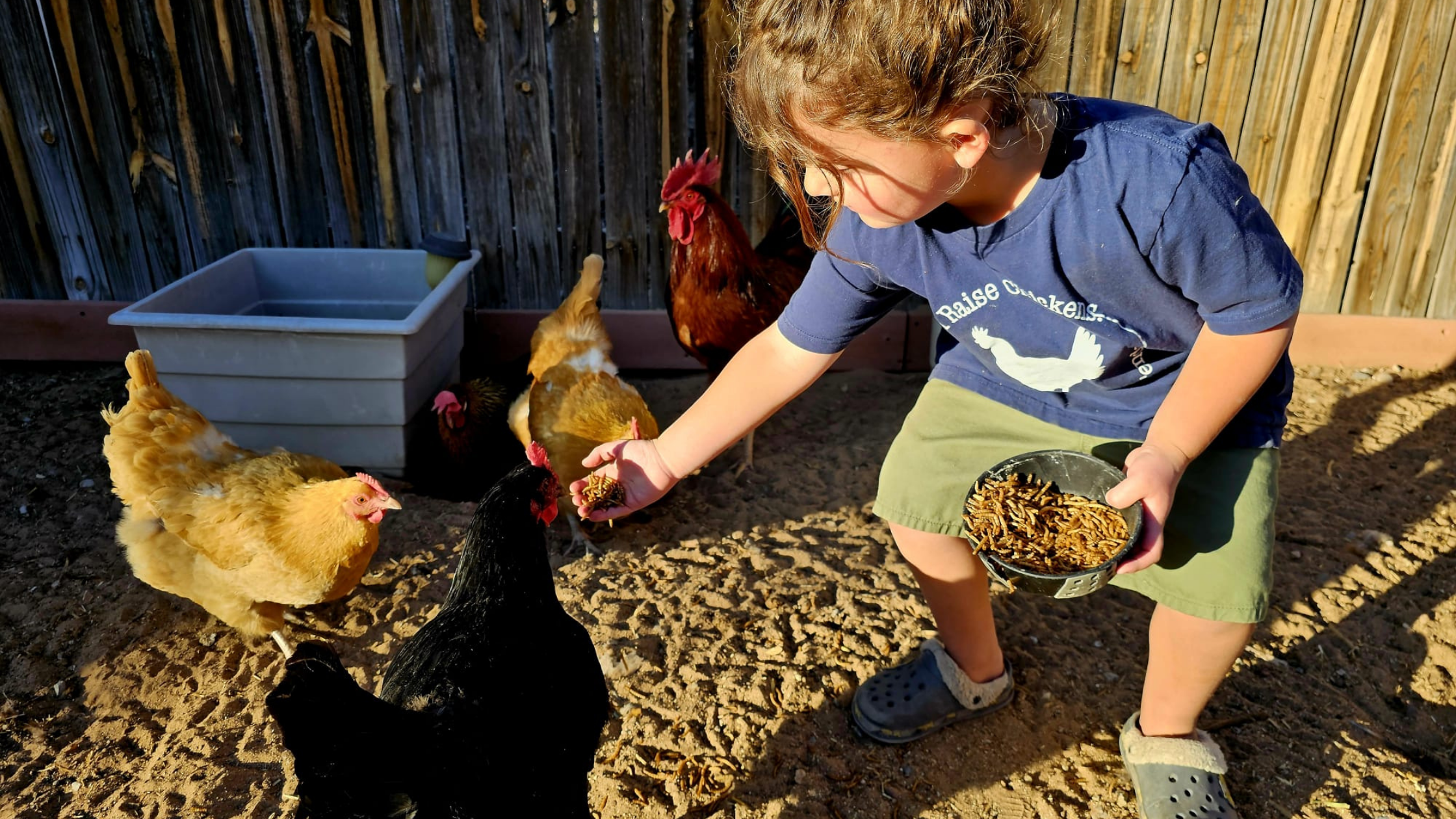Payton McGriff is the Founder and CEO of Style Her Empowered (S H E), a nonprofit social enterprise creating sustainable education and employment opportunities for girls and women around the world. Payton started S H E as a school project after learning that a required school uniform is one of the largest financial barriers keeping girls out of school in marginalized communities, but providing free school uniforms is one of the most cost-effective way to keep girls in school and help them improve their performance outcomes. Today, S H E has evolved into an international organization serving thousands of girls annually and employing dozens of women year-round in Togo, Africa with plans to expand and replicate their success underrepresented communities around the world.
What does “entrepreneurship” mean to you?
 Payton McGriff: At its simplest, I think entrepreneurship means a willingness to more deeply understand a problem and do something to solve it. Everyone can be an entrepreneur in their own way, and it’s this accessibility and inclusivity that makes entrepreneurship special, in my opinion.
Payton McGriff: At its simplest, I think entrepreneurship means a willingness to more deeply understand a problem and do something to solve it. Everyone can be an entrepreneur in their own way, and it’s this accessibility and inclusivity that makes entrepreneurship special, in my opinion.
Tell us about your first experience with entrepreneurship.
PM: When I was a kid, I was really young for my grade. So while all of my friends were getting jobs in high school, no one would hire me. I think I applied for more than 25 jobs the summer before college, but I struck out across the board. Since I was heading to college that fall, I had to get creative to earn money for school. So, I started helping people clean out their garages for free in exchange for all the stuff they were getting rid of. I would take their excess stuff and sell it in garage sales on the weekend. I actually made enough to pay for my first year of school, so it worked out!
What is your company’s origin story? What is the biggest reason you started your business? What did those early days look like and teach you?
PM: I discovered my passion for girls’ education and women’s empowerment when I read the book, Half the Sky, and learned about the plight of women around the world. This book opened my eyes to the incredible resilience and courage of women who find opportunity in some of the most extreme forms of adversity. One thing that stayed with me for years after reading this book was the fact that providing school uniforms is one of the most cost-effective ways to keep girls in school around the world.
During my senior year of college, I took an entrepreneurship class to see if I could build a business model that provided school uniforms for girls by training and employing local seamstresses in their communities. I pitched the idea to a professor in the International Studies program at my school who was from Togo, Africa. He liked the idea and agreed to partner with me to start a program in his hometown under one condition: I had to travel to Togo and make sure it was a good fit with the local community first. 11 days after meeting him, I joined him on a spring break trip to Togo to meet with local girls from junior high and high school who confirmed that they face the daily threat of being turned away from school for not having a required uniform. Together, we put together a small idea for a girls’ education project that I took back to the US to pitch at our student competitions. I won about $35,000 to launch a pilot program in those competitions, and two weeks before graduation, I turned down what I thought was my dream job to return to Togo and launch our pilot program.
The early days were an amazing mix of learning (and oftentimes unlearning) to build a model that works best for local girls and creates opportunity for local women. Our early days taught me to listen first and be extremely adaptive.
The first girl I met on my original trip to Togo, Elolo, became the first girl sponsored by S H E in 2017, and she helped recruit 65 girls to the program our first year. Fast forward to today, and Elolo has now graduated high school and joined our full-time team as our Impact Coordinator. She now oversees programming for 1,500 girls sponsored each year, so that was a really special, full-circle for all of us.
What do you wish you knew when you started? Is there anything you would do differently?
PM: Becoming an entrepreneur is as much a personal journey as it is a professional one. I wish I knew to stay curious about all of the discomfort and learning moments, rather than feeling like I needed to have it all figured out from the beginning. I’ve been fortunate to have amazing mentors who have taught me that leading with curiosity is the best way to lead an empowered team, so I feel grateful to have learned that from them. I also wouldn’t do anything differently. Every step or unexpected moment has taught me so much, or led us to find our incredible team members, or challenged our team to think differently.
What does “success” look like for you? We’d love to hear your biggest, boldest dream? What do you think will help you achieve it?
PM: As a nonprofit social enterprise, success for S H E looks like a self-sustaining model that we can replicate to serve girls and women in marginalized communities throughout the world. Our programming started in Togo in 2017 with 65 girls in school and just two women on our team. We’ve since grown to support 1,500 girls annually and employ a local team of 30 women in-country.
Now that we’re 5 years into our journey, we’ve been able to see really meaningful and measurable impact for the girls and women we serve. And now, we’re pouring a lot of energy into building our earned revenue model to sustain and scale our work in the long-term.
At S H E, we are best known for designing the world’s only school uniform dress that expands with girls as they grow. Now, we are in the process of launching a full line of sustainable and ethical school uniforms that can be sold around the world to fund our impact work. We’re launching our S H E uniforms in Fall 2022, so we’re extremely excited about the potential impact of this new venture.
What is your superpower as an entrepreneur? What is your proudest and darkest moment so far? Share a key high and a key low from your journey if you can.
PM: I’d say that my superpower are leading people with creativity, compassion, and curiosity. This has allowed us to build trust with our team members, our partner communities, and our investors. I’m extremely proud of the impactful program we’ve built at S H E, and I think that’s thanks to the culture we’ve created on our team. Our team is spread across two continents, three languages, and four cities, so we have to intentionally build and constantly nurture our culture. But our shared trust and sense of humor has made all the difference in getting us through all the unanticipated challenges of building a social enterprise. The highest highs come when we all get together as a team and share the reasons we feel S H E is special.
The lowest moments are when I experience self-doubt and the loneliness of entrepreneurship, and I’ve realized that that is so common among entrepreneurs. I know every decision affects our girls whose educations are on the line and our women whose livelihoods are at stake, so there are definitely moments when I feel overwhelmed as a young, first-time founder. But I’ve gotten much better about sharing that with my mentors or team members, and it’s helped me realize that we’re all experiencing super similar things and we can help each other carry the weight of responsibility.
What are your personal driving principals, your top values?
PM: My top values are humor, compassion, and connection.
How have your personal principles and values shaped your company’s values and principles? Give us some examples.
PM: Humor is also one of the tops values of our team. As a company that works across two continents and three languages, humor is the universal language that we all speak fluently. We take our work very seriously, but we’ve never taken ourselves too seriously. The Togolese working culture is extremely hierarchical, so it’s especially important for our leadership team to be willing to laugh at ourselves and strip away some of the power dynamics that can prevent team members from feeling empowered to share their thoughts and ideas.
Many of our team members come from vastly different backgrounds, so we actually do a lot of values mapping to better understand each other’s motivations and fears. And we can kind of help each other realize when fears are getting in the way of our values. Every six months, we check in with our employees to see how they’re connecting with their own values, and then we ask them to evaluate how they think our company is exercising, or not exercising, our values. This has been a really great way for us to support our employees in their growth as individuals, and it’s a comfortable way for them to hold us accountable to our values too. It’s pretty rare to have open dialogue like this with your employer in Togo, so we have to hold these conversations regularly and consistently to build an environment where our team members really feel comfortable speaking freely. But it’s been a game-changer in opening channels of communication from our team members.
What’s it like to work alone or with your partners?
PM: Entrepreneurship can definitely be a lonely journey, and as the only US-based employee on our staff for several years, I definitely crave opportunities to work closely with a team. For about 11 months out of the year, I work remotely from our team to support their work, and I spend about a month in Togo each year. We all get energy from each other, so it’s pretty fun when we’re all able to be in the same room. I’m so excited to be slowly building our international team as we grow the social enterprise model, so the next years will be a lot of fun.
Do you have a mentor? Tell us about what makes them valuable to you and your business?
PM: I am lucky to have so many mentors who I connect with regularly to navigate everything. My mom used to always say, “We only have the value of our own perspective unless we’re actually willing to learn from each other.” I don’t think I fully appreciated that as a kid, but luckily I inadvertently absorbed that mentality. So, I feel like I collect mentors now and its allowed me to build and maintain perspective throughout every twist and turn.
Mentorship is so valuable to me because I feel like I can be on the journey and see it at the same time, and that makes me a much better leader to the company and my team.
What role does mentorship play in your world (as a mentor or mentee)?
PM: I really feel like my mentors have been the key to my success. I was only 22 when I started S H E, and I had no formal job experiences outside of internships. So, to say that I had a lot to learn about the leader I wanted to become is a huge understatement. The greatest mentors are the ones who ask the most thoughtful questions and guide me through the thinking process. Celena Aponte at the Center and my business partner, Stacey, are some of my greatest mentors because they are two of the most curious and thoughtful people I’ve ever met. So that is the type of mentorship I seek, and that’s the mentorship I try to provide to others.
Many entrepreneurs continue to perfect their daily routines to support their work and greater vision; would you mind sharing your morning routine or a regular ritual that grounds your work each day?
PM: I’ve been getting in the habit of journaling every day. Reflection and ideation are such important parts of what we do as entrepreneurs, so journaling is a great way for me to practice those skills. I also get outside twice a day. Most of the time it’s to walk my dogs, but I also try to find faster-paced activities that force me to be in my body, rather than stuck in my mind. That’s been a really great balance for me.
What are you reading or have read?
PM: I’m actually re-reading Half the Sky. We’re about to celebrate our 5-year anniversary as a company, so I wanted to remember where we started and reconnect with the inspiration for S H E. It’s also one of the most important books I’ve ever read, so I do highly recommend it 🙂
Where do you go for inspiration?
PM: I am constantly reading through our student and employee stories. I think there is nothing more inspiring than a story about one of our seamstresses who was denied the opportunity to go to school as a child and then goes on to flourish when she earns a steady, living-wage income. Over time in our paid-to-learn employment program, we get to see our women go from not being able to sign their own names on their first paycheck to reading and writing in basic French, purchasing plots of land to build a family home, and investing in their children’s education. I’m just in awe of the tenacity and persistence of our girls and women.
Do you have a favorite quote, mantra, or words of wisdom to get through the tough days?
PM: I collect quotes that I use all the time to help me reset. Some of the favorites are “all virtue lies in the middle” to remind myself that virtue lies between two vices. As an example, I like to remind myself and others that humility lies between arrogance and self-deprecation, so sometimes we think we’re living in humility, but we’ve actually passed the target and are living in self-deprecation. And one I borrow from my husband, “you don’t stop playing because you get old, you get old because you stop playing” to remind myself to keep doing the things that make me happy and creative and not set arbitrary limits on joy.
What is a problem that keeps you up at night?
PM: We’ve uncovered an equal number of problems and areas of opportunity in our work. We’re constantly looking at the short-term barriers and systemic biases that contribute to on-going gender and racial discrimination. And we regularly reiterate our Theory of Change to be as holistic in addressing these as possible. One thing that’s been top of mind for us recently is the environmental degradation we’re watching throughout Togo and much of the world. Togo has 97% deforestation of native tree species, so the climate is changing rapidly and clean water resources are becoming harder to access in our communities. It’s clear to us that if environmental sustainability is not core to all of the work we’re doing, our girls and women won’t have an environment to exercise their economic and educational potential.
How do you think about helping others through your work?
PM: One of our favorite sayings is “nothing about us without us.” To not repeat the same mistakes of a lot of international development efforts, we prioritize the dignity and agency of the people we serve. Everything we do is in partnership with our students, their parents, and our community stakeholders, so we try to think about it less as helping others and more as building equitable partnerships.
What advice do you have for fellow (and aspiring) entrepreneurs building and leading teams?
PM: Your job as a leader is not to have all the answers, it’s to ask the right questions. Trust your intuition, and lead with curiosity about yourself and others.
What kind of an entrepreneur do you want to be known as – as in, what do you want your legacy to be?
PM: I want to be known as an entrepreneur who holds the door of opportunity open for others. I’m incredibly fortunate and privileged to be in the position to start S H E, and I recognize that there are so many others with immense talent and potential who simply lack the opportunities that I do as an American white woman. I hope that all the work that I do in my life contributes to the dismantling of barriers that prevent people from all walks of life from flourishing.
Do you have someone you’d like to nominate to be profiled in our Faces of Entrepreneurship series? Please let us know by emailing media@thecenter.nasdaq.org or submit your nomination using this form.




